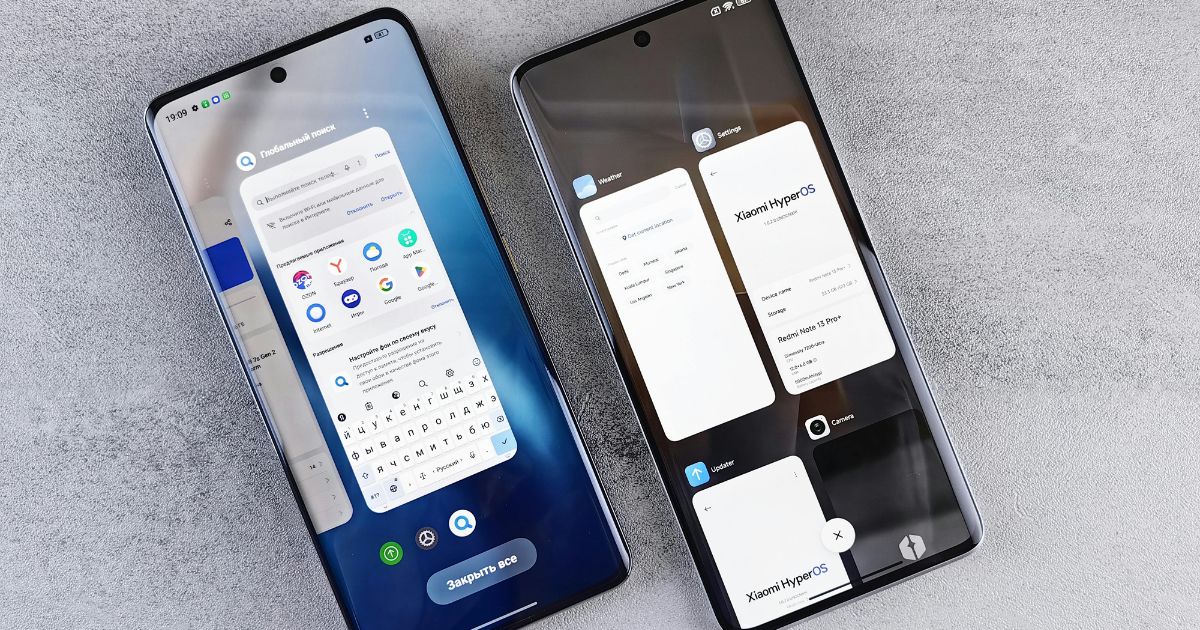In a bold move to enhance the safety and quality of the apps available on its platform, Google has announced a major policy update for the Google Play Store, set to take effect on August 31. This mass app deletion initiative aims to remove low-quality, static, and non-functional apps that clutter the store and pose potential security risks.
As Android users eagerly await the upcoming release of Android 15, which promises innovative security features, Google's latest policy change underscores its commitment to providing a secure and engaging user experience.
In this article, we share the specifics of Google's new policies, the types of apps targeted for deletion, and what developers need to do to comply with these stringent standards. Whether you're an app developer or a curious user, understanding the implications of this update is crucial as the Play Store undergoes this significant transformation.
The Reason Behind Google's App Deletion Update
Google's recent app deletion update aims to enhance the safety and quality of apps on the Play Store. This initiative is part of Google's ongoing effort to make Android more secure and privacy-focused, similar to Apple's ecosystem.
The primary goal is to remove apps that are deemed low-quality, static, or non-functional, as these types of apps are often used as conduits for malware and other security threats. By raising the quality threshold, Google intends to create a safer and more engaging user experience.
How Google’s Policy Update Impacts Developers
The update to the Spam and Minimum Functionality policy significantly impacts developers by enforcing stricter standards for app quality and functionality. Developers are now required to ensure their apps provide a stable, responsive, and engaging user experience.
Apps that crash frequently, lack adequate utility, or do not meet the new content and functionality standards will be removed from the Play Store. This change compels developers to reassess and potentially enhance their apps to comply with the updated guidelines, fostering a higher overall quality of available apps.
Types of Apps that Google Plans to Target with this Deletion
Google plans to target several types of low-quality apps with this deletion, aiming to enhance the overall quality and safety of the Play Store. These include the following types of apps.
- Static apps without specific functionalities: these apps, such as text-only or PDF file apps, typically serve as simple placeholders or basic utility tools. They often offer little to no interactive experience for users, failing to leverage the full capabilities of modern mobile devices. By removing these static apps, Google aims to ensure that all available apps provide meaningful interactions and functionalities that enhance user engagement.
- Apps with minimal content that don’t offer an engaging UX: examples include single wallpaper apps that provide only one piece of content or function. These apps tend to clutter the Play Store, offering a limited and often unsatisfactory user experience. They can dilute the quality of available apps, making it harder for users to find valuable and engaging content. Eliminating these apps will help streamline the Play Store, focusing on apps that deliver richer and more diverse experiences.
- Apps designed that have no real function: these are often deceptive in nature, appearing to be functional but serving no legitimate purpose. Such apps can be exploited as entry points for malicious software, posing significant security risks to users. By targeting and removing these apps, Google aims to mitigate potential threats and enhance the security of the Play Store. This proactive measure is expected to reduce the prevalence of malware, protecting users from potential harm.
By raising the bar for app functionality and user engagement, Google aims to create a more secure and enjoyable environment for its users. This initiative is expected to result in a more reliable and valuable app marketplace, where users can trust that the apps they download offer genuine utility and a positive user experience.
How the Upcoming Release of Android 15 Ties into These Changes
The release of Android 15 ties into these changes by introducing innovative features like "live threat detection”, which uses on-device AI to analyze behavioral signals related to sensitive permissions and interactions with other apps and services.
This feature aims to quickly identify and flag misbehaving apps, reducing the time between detecting a threat and removing it. While this enhancement addresses the timely detection and removal of harmful apps, it complements the mass app deletion by ensuring that only high-quality, secure apps make it to the Play Store in the first place.
Developer Responsibilities Outlined by Google Considering the New Policy Changes
In light of the new policy changes, developers have several responsibilities to keep in mind, as they make necessary improvements to meet these standards and ensure their apps continue to be available on the Play Store.
- Ensuring their apps are stable and responsive: developers must prioritize creating apps that function smoothly and reliably. This means minimizing crashes, optimizing performance, and ensuring quick response times. Stability and responsiveness are critical for maintaining user trust and satisfaction. An app that frequently crashes or lags can frustrate users, leading to negative reviews and decreased usage. Developers need to thoroughly test their apps across various devices and scenarios to ensure a seamless user experience.
- Providing utility and engaging content: developers must ensure that their apps offer real value and engaging content. This involves creating apps that serve a clear purpose and provide meaningful interactions for users. Whether it's through useful tools, informative content, or entertaining features, apps should be designed to keep users engaged and satisfied. Apps that lack utility or fail to captivate users may be removed from the Play Store, encouraging developers to innovate and improve their offerings continuously.
- Removing third-party code to reduce malware: to enhance security, developers must scrutinize the third-party code they incorporate into their apps. Code from providers known to distribute malware must be removed, even if the code itself appears harmless. This measure helps prevent malicious software from infiltrating the Play Store through seemingly legitimate apps. Developers need to stay informed about the security reputations of third-party providers and ensure that their integrations do not compromise user safety.
- Complying with rules on spyware and security measures: developers are required to adhere to stricter rules regarding spyware and overall app security. This includes implementing robust security protocols to protect user data and prevent unauthorized access. Compliance with these enhanced security measures is crucial for maintaining the integrity of the Play Store and protecting users from privacy breaches. Developers must stay updated on the latest security guidelines and incorporate best practices into their app development processes.
By complying with these responsibilities, developers can contribute to a safer and more enjoyable app ecosystem, ultimately benefiting both users and the broader Android community.
Expected Consequences for Users and Developers
For users, the mass app deletion is expected to result in a safer and higher-quality app ecosystem, reducing the risk of encountering malicious or useless apps. Users will benefit from more reliable and engaging apps.
For developers, the consequences include the need to ensure their apps meet the new quality and functionality standards. Some popular apps with millions of installs might be affected if they fail to comply. Developers may need to invest additional resources to enhance their apps, but this also presents an opportunity to improve app performance and user satisfaction.
Industry Opinions on the Update
The update has generated significant attention and mixed feedback from industry watchers and users. While many appreciate the move towards a safer and higher-quality app ecosystem, some express concerns about the sudden nature of the announcement and the scale of the impending deletions.
Industry watchers highlight the potential positive impact on app security but also caution that this purge is not a comprehensive solution to Play Store's security challenges. Users have generally responded positively, with some hoping for better regulations and a more useful Play Store, though there remains a segment resistant to changes resembling Apple's approach.
Ongoing Play Store Issues the Update Doesn’t Address
Despite the update, there are ongoing issues with the Play Store that remain unaddressed. One significant issue is the Play Store's habit of falsely claiming apps or the Android version are up to date when they are not. This version sync problem, which started when Google decoupled app updates from system updates, can leave users exposed to security vulnerabilities.
While a simple refresh may resolve the sync issue, it's an extra step many users may not take, highlighting a gap in Google's efforts to streamline and secure app updates compared to Apple's more cohesive approach.
How this Update Compares to Apple's App Safety and Security
This update brings Google's approach to app safety and security closer to Apple's more stringent and controlled ecosystem. Apple has long been known for its rigorous app review process and higher quality standards, which have contributed to a relatively safer app environment. By raising the quality threshold and enforcing stricter functionality and security standards, Google aims to emulate this model. However, Google's ecosystem still differs in its openness and flexibility, which can be both an advantage and a challenge in maintaining the same level of control and security as Apple's App Store.
If you're unsure whether your app complies with the new policies or need assistance in making necessary updates, AppIt can help. With our expertise in app development and a proven track record of delivering high-quality, secure applications, we can ensure your app meets Google's requirements and continues to provide a valuable experience for your users.
Don't let your app fall behind. Contact AppIt today to discuss how we can help you update your app, enhance its functionality, and ensure it complies with Google's latest policy changes. Together, we can keep your app thriving on the Play Store and provide your users with the best possible experience.








